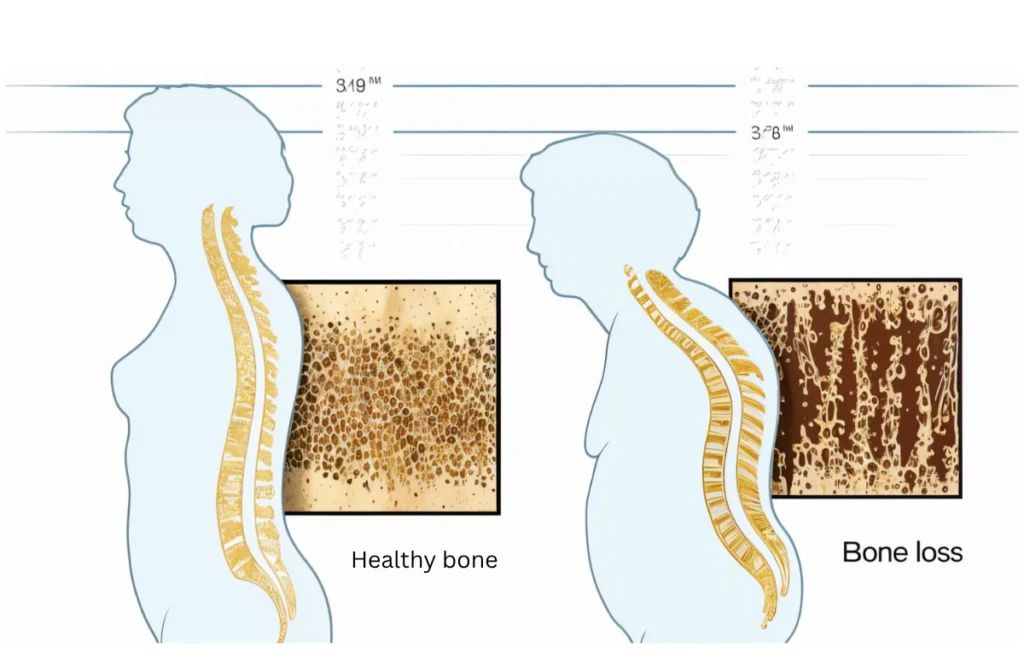Bone health in women is a critical topic that deserves attention at every stage of life. From childhood to post-menopause, strong bones ensure mobility, prevent injuries, and enhance overall well-being. Unfortunately, many women neglect bone health until issues arise. This blog explores why bone health in women is essential, how to maintain it, and the key steps to build a stronger skeletal framework. At CTS HOSPITAL, we provide expert guidance to help women achieve optimal bone health.
Bone Health: Tips to Keep Your Bones Healthy
Maintaining bone health in women is easier with the right approach and habits. Here are some actionable tips:
- Consume Calcium-Rich Foods
Incorporate foods like milk, yogurt, cheese, almonds, and leafy greens into your diet. Calcium is the cornerstone of strong bones, and getting enough through your meals is crucial for women of all ages. - Exercise Regularly
Weight-bearing exercises like walking, jogging, and strength training help increase bone density. Consistent physical activity not only strengthens bones but also enhances muscle support, reducing the risk of falls and fractures. - Avoid Smoking and Excessive Alcohol
Smoking can decrease bone density, while excessive alcohol interferes with calcium absorption. For better bone health in women, avoiding these habits can make a significant difference.

What Women Need to Know About Bone Health
Women’s bones are more vulnerable to thinning and weakening over time. At CTS HOSPITAL, we help women understand the risks and preventive measures for maintaining strong bones.
- The Role of Hormones
Estrogen plays a vital role in preserving bone mass. After menopause, the decrease in estrogen levels often leads to faster bone loss, making bone health in women a priority during and after this stage. - Early Intervention is Key
Young women often overlook their bone health, but it’s essential to build strong bones early. Engaging in physical activity, eating nutrient-rich foods for strong bone, and scheduling regular check-ups can prevent issues later in life.
Low Bone Density and Osteoporosis in Young Adult Women
Bone health in women isn’t just an older adult issue. Young women, too, can face challenges like low bone density and even osteoporosis. At CTS HOSPITAL, we help women address these conditions early.
- Understanding Osteoporosis in Youth
Low bone density in young women can stem from poor nutrition, hormonal imbalances, or sedentary lifestyles. Identifying these causes early can prevent fractures and long-term complications. - Steps to Improve Bone Density
Incorporating strength-building exercises and bone health supplements for women, like calcium and vitamin D, can make a huge difference. Addressing deficiencies promptly is essential to reversing early bone loss.
Why Is Bone Health Important?
Bone health in women affects overall well-being, mobility, and quality of life. At CTS HOSPITAL, we emphasize the importance of strong bones for women of all ages.
- Prevents Fractures
Weak bones are prone to fractures, especially in the hips, spine, and wrists. Ensuring proper bone health reduces these risks significantly. - Supports Long-Term Health
Strong bones are integral to a woman’s overall health. They support physical activity, protect internal organs, and help maintain posture and balance.
What Affects Bone Health?
Several factors influence bone health in women. Recognizing these factors is essential for taking preventive measures.
- Genetics
Family history plays a role in determining bone density. If osteoporosis or fractures run in your family, paying extra attention to bone health is crucial. - Lifestyle Choices
Diet, physical activity, and habits like smoking impact bone strength. Women who lead an active lifestyle and eat a balanced diet are more likely to have healthy bones. - Age and Hormones
As women age, bone density naturally declines. Hormonal changes, particularly during menopause, accelerate this process.
What Is a Bone Density Test?
A bone density test women is a non-invasive scan that measures the strength and density of bones. At CTS HOSPITAL, we offer advanced diagnostic services for assessing bone health.
- Who Needs It?
Women over 50 or those with risk factors for osteoporosis should consider a bone density test. It’s also recommended for younger women with a family history of bone issues or other risk factors. - How It Works
The test uses low-dose X-rays to determine bone mineral content. The results help identify the risk of fractures and guide treatment plans.
Top 5 Supplements for Bone Health
Bone health supplements for women are an effective way to ensure adequate nutrients for strong bones. At CTS HOSPITAL, we guide women on the best supplements to suit their needs.
Calcium
Calcium is essential for building and maintaining bone structure and strength. Women often fail to consume enough calcium through their diet, making supplements a vital option to meet daily requirements. Ensuring optimal calcium levels reduces the risk of bone thinning and fractures.
Vitamin D
Vitamin D is crucial for calcium absorption, ensuring your body utilizes calcium effectively. Without adequate vitamin D, bones can become brittle, increasing the risk of fractures and osteoporosis. This highlights why is vitamin D important for bone health, as it plays a pivotal role in maintaining bone strength and resilience.
Magnesium
Magnesium supports calcium metabolism and aids in bone formation. This vital mineral ensures the proper balance of calcium in the body, promoting stronger bones and reducing the likelihood of deficiencies that could affect bone health.
Vitamin K
Vitamin K contributes to bone mineralization and supports the maintenance of bone density. Women, especially those approaching menopause, benefit significantly from including vitamin K in their supplement routine. It acts as a foundation for healthier bones.
Isoflavones
soflavones are plant-based compounds that mimic estrogen, helping maintain bone density during menopause. Their natural properties make them an excellent addition to supplement regimens for women aiming to combat hormonal changes that affect bone health.
By understanding why is vitamin D important for bone health and incorporating these supplements into a daily routine, women can significantly improve their overall bone strength and health. At CTS HOSPITAL, we’re here to help women choose the best options for their unique needs.
Effective Ways to Maintain Strong and Healthy Bones
Keeping your bones strong is essential for overall health, mobility, and preventing conditions like osteoporosis. Bone health depends on a combination of proper nutrition, physical activity, and lifestyle habits. Taking proactive steps can help maintain bone density and reduce the risk of fractures.
Tips to Keep Your Bones Healthy:
- Consume Calcium-Rich Foods: Dairy products, leafy greens, and fortified foods support bone strength.
- Increase Vitamin D Intake: Sun exposure and foods like salmon, eggs, and fortified cereals help the body absorb calcium.
- Regular Weight-Bearing Exercises: Activities such as walking, jogging, and strength training improve bone density.
- Avoid Smoking and Excessive Alcohol: Both can weaken bones and increase the risk of fractures.
- Consider Supplements: If dietary intake is insufficient, bone health supplements for women can provide essential nutrients like calcium, magnesium, and vitamin D.
By adopting these habits, you can protect your bones and ensure long-term skeletal health.
Vitamin D for Good Bone Health
Why is vitamin D important for bone health? It enhances calcium absorption, ensuring your body gets the maximum benefit from the calcium you consume. At CTS HOSPITAL, we emphasize the role of vitamin D in maintaining strong, healthy bones.
- Sunlight as a Source
Exposure to sunlight is one of the best ways to get vitamin D naturally. Aim for 15-20 minutes of sun exposure daily, depending on your skin type and location. - Supplements for Women
For those who can’t get enough sunlight, vitamin D supplements are a reliable alternative. Consult a healthcare professional to determine the right dosage.
What Are Food Sources of Vitamin D?
Vitamin D-rich foods are an excellent way to boost your intake. At CTS HOSPITAL, we guide women on incorporating these into their daily diet.
- Fatty Fish
Salmon, mackerel, and tuna are rich sources of vitamin D. Including these in your diet a few times a week can significantly benefit bone health. - Egg Yolks and Dairy
Egg yolks and fortified dairy products are other good sources of vitamin D. They’re easy to include in your meals and provide additional nutritional benefits. - Fortified Foods
Foods like fortified cereals, orange juice, and plant-based milk alternatives are also excellent options for boosting vitamin D intake.
Conclusion
Bone health in women is a lifelong journey that requires attention and care. By taking steps such as consuming nutrient-rich foods, staying active, and undergoing regular check-ups like a bone density test women, you can maintain strong bones and prevent complications like osteoporosis. At CTS HOSPITAL, our team is dedicated to supporting your bone health through personalized care and expert advice.

